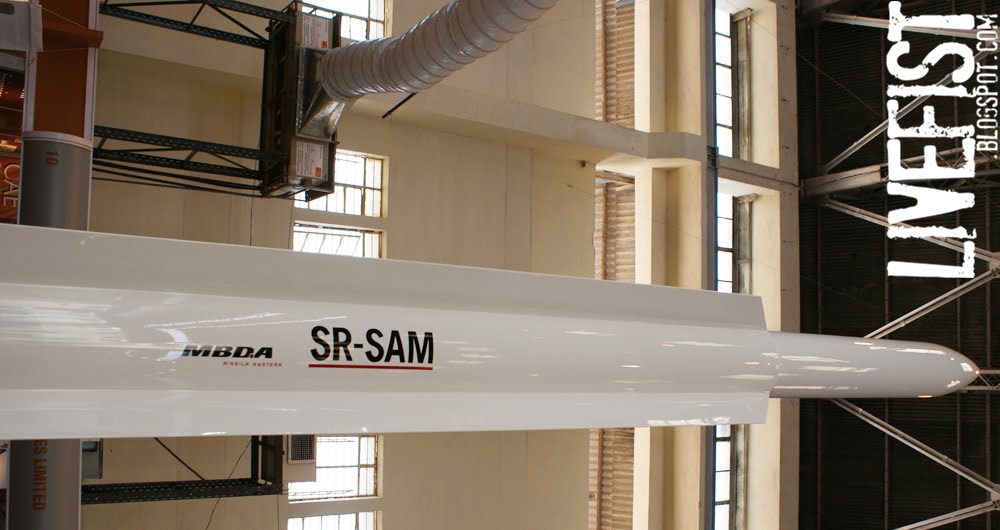Le programme SRSAM développé en partie par le missilier MBDA pourrait être annulé en Inde (Crédits : MBDA)
12/09/2014 Michel Cabirol – LaTribune.fr
Un contrat de 1,8 milliard d'euros en Inde pourrait échapper au missilier européen et à son partenaire Thales. Faute de financement, New Delhi pourrait annuler le programme SRSAM, un missile sol-air. En revanche, MBDA revient en cour en Turquie.
Ce serait une grosse tuile pour MBDA et son partenaire Thales en Inde. Selon plusieurs sources concordantes industrielles et étatiques, le nouveau gouvernement indien pourrait annuler le programme SRSAM (Short Range Surface to Air Missile) faute de trouver un financement. Ce missile sol-air de nouvelle génération devait être co-développé avec la DRDO (Defence Research and Development Organisation) et coproduit en Inde avec Bharat Dynamics Limited. Le missilier européen était associé ainsi que son fournisseur, Thales, à ce programme.
"Nous sommes inquiets pour ce projet", explique-t-on aujourd'hui à Paris à La Tribune. Quant aux industriels, ils confirment à demi-mot qu'il règne une certaine confusion en Inde sur ce dossier. D'autant que les Israéliens tentent le tout pour le tout pour faire annuler ce contrat dans ce pays qui reste un de leur meilleur client export.
Pour autant, les autorités françaises poursuivent leurs actions en Inde. "Tant que le programme n'est pas annulé officiellement, nous nous battrons", indique-t-on à Paris. Deux réunions de haut niveau ont ainsi eu lieu lors des deux dernières semaines, selon nos informations. En parallèle, MBDA poursuit également ses actions auprès de la DRDO notamment. Le missilier rappelle que le besoin opérationnel reste évident et les autorités ont conscience des atouts majeurs que représente son offre, qui donne la part belle à l'industrie locale avec un transfert de technologies important.
Vers une annulation ?
Le projet est estimé à 4,5 milliards d'euros (6 milliards de dollars), dont 1,8 milliard d'euros devait revenir à MBDA, qui attend depuis des années ce très beau contrat. En tant que sous-traitant, Thales aurait gonflé son carnet de commandes d'environ 400 millions d'euros. Les deux groupes négocient ce contrat depuis près de dix ans. Depuis décembre 2011, les négociations sont même terminées. En février 2013 à l'issue de la visite de François Hollande, un communiqué de l'ancien Premier ministre indien, Dr Manmohan Singh's avait par ailleurs annoncé avoir conclu avec les industriels les négociations sur le missile SRSAM.
Pour quelles raisons l'Inde pourrait-elle annuler le SRSAM ? Initialement conçu par l'armée de Terre, de l'air et la Marine, ce système ne devait in fine équiper que la seule marine. L'armée de terre et de l'air ont quitté le programme et se sont dirigés vers d'autres programmes... et des budgets concurrents. Notamment le missile Akash développé par la DRDO pour le compte de l'armée de terre et de l'air. Un programme qui a été testé dix fois par les deux armées depuis le début de l'année. "Les tests ont été conduits dans des configurations d'engagement et de cibles différentes", avait expliqué début août le ministère de la Défense indien.
Retour en grâce en Turquie
La Turquie, qui a fin août prolongé les négociations jusqu'à la fin 2014, mène des discussions avec la France pour l'achat d'un système antimissile (programme T-Loramids) après les difficultés rencontrées dans les négociations avec une société chinoise placée sur liste noire par les États-Unis, a annoncé le président turc cité par la presse dimanche. "Certains désaccords sont survenus avec la Chine sur la question de la fabrication conjointe et du savoir-faire pour le système antimissile", avait déclaré le président Recep Tayyip Erdogan en marge du sommet de l'Otan aux Pays de Galle, selon la télévision privée NTV.
"Malgré cela, les discussions se poursuivent, mais la France, deuxième sur la liste (ndlr: des fournisseurs éventuels) nous a fait une nouvelle offre" et "actuellement nous menons des discussions avec la France", a précisé le chef de l'Etat. Plus précisément avec le GI Eurosam composé de MBDA et Thales. Les deux industriels tricolores, qui étaient arrivés devant le Patriot américain, proposent le système SAMP/T, armé de missiles Aster 30 (MBDA) et équipé des radars Arabel et/ou GM400 (Thales). Pour ce contrat, "la production conjointe est importante pour nous", a expliqué le président turc.
Ankara discutait exclusivement avec Pékin
En septembre 2013, la Turquie avait retenu la compagnie chinoise China Precision Machinery Export-Import Corporation (CPMIEC) pour la livraison de missiles sol-air de longue portée, provoquant la préoccupation de Washington. CPMIEC, qui fabrique le système antimissile HQ-9, est la cible de sanctions américaines pour avoir vendu des armes et de la technologie liée aux missiles à l'Iran et à la Syrie. L'initiative turque avait également irrité les alliés d'Ankara au sein de l'Otan, pour qui les systèmes d'armes des membres de l'Alliance doivent être compatibles entre eux.
CPMIEC avait été retenue au détriment des américains Raytheon et Lockheed Martin, du russe Rosoboronexport et du consortium franco-italien Eurosam (MBDA et Thales) pour ce contrat estimé entre 3 et 4 milliards d'euros. Ankara aurait dû normalement confirmer sa décision à l'été 2014.
commenter cet article …


















